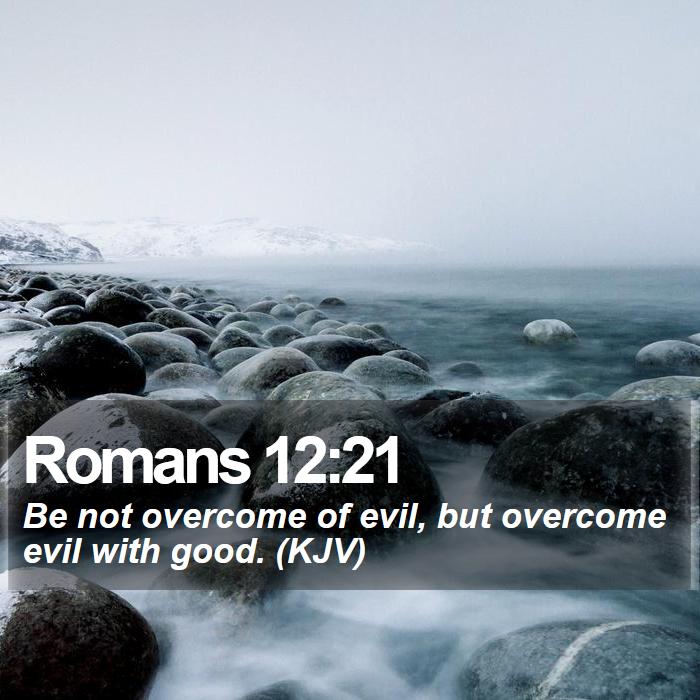The Word Says:
“And be not conformed to this world: but be ye transformed by the renewing of your mind, that ye may prove what is that good, and acceptable, and perfect, will of God.”
Verse Thoughts:
As believers we have been called to personal consecration, where our lives are a reflection of Christ and our bodies a living sacrifice to the Lord. It is our spiritual worship and our reasonable service to yield our-lives, our-selves, and our-bodies to the Lord – to consecrate ourselves to Him each day.
The fallen world and sinful man is all too ready to squeeze us into its own mould and to cultivate in us a worldly mindset, where God is far removed. Our own sin nature rebels against the Spirit Who dwells within, and the Spirit lusts against our fallen fleshly desires, but Paul warns us not to be conformed to this world, but rather to be transformed by the renewing of our minds.
The daily transformation process, where we are being changed from glory to glory, into the image and likeness of Christ, as we abide in Him and He in us, is a lifelong process that requires vigilance at all times. The enemy of our soul desires to shipwreck our faith and render our testimony impotent – either by stroking our ego or by causing us to become fearful. He is a deceiver and murderer and has been from the beginning, and we need to put on the armour of God, day by day, if we are to overcome the world, the flesh, and the devil.
The sin nature is programmed to be conformed to the world, but the transforming work of the indwelling Holy Spirit requires the continuous and ongoing renewing of our mind, so that our thoughts are influenced by the mind of Christ, as the desire of His heart becomes our own desire and delight, and His perfect will is translated into our will.
Day by day rededication of ourselves to His service is a lifelong programme, which we need to choose consciously. Transformation does not take place overnight, but is dependent on the hidden values of the heart being translated into the active practice of our thoughts and motives. It is a freewill choice to eschew that which is evil and to honour the Lord in beautiful thoughts, beautiful words, and beautiful deeds, by choosing to do what is right and holy.
The Holy Spirit alone is that One that implements our inner transformation. He is the One that causes us to be, “transformed by the renewing of your mind.” He carries out this refining work in the inner recesses of our hearts, “so that you may prove what the will of God is, that which is good and acceptable and perfect.”
How important therefore to keep our focus on Jesus and to train the eyes of our hearts on heavenly things that are true and honest, just and pure, lovely and wholesome, godly and of good report. How necessary to capture every thought that casts a shadow on our mind and reject every motive that dishonours our Saviour – and allow them to be filtered through the lens of His purifying process and refining fire.
How true it is that you become like the person with whom you spend time, and whatever has captivated your heart inevitably reflects attitudes and behaviours in life, (whether good or evil), and too often it is not a pretty sight. We are warned not to habitually be immersed in the world but to set our minds on the Lord Jesus Christ, and make Him the central focus of our thoughts.
If we would just turn our spirit and soul towards the Lord Jesus, we would automatically have to turn away from the things of this world. And if each one of us set our heart, mind, will, and affection to concentrate upon Him, of necessity, we would not be conformed to the lustful leanings of the world, but our new, born-again nature would start to be supernaturally transformed into the character of Christ.
The evidence of this lovely transfiguring process is not only an outward disassociation from an ungodly world and the works of the world, the flesh, and the devil, but a life that is good, acceptable, perfect and pleasing to the Father – but note, that transformation is perfected through trials, difficulties, suffering, and sorrow.
May we turn from the things of this world in willing submission to God’s child-training programme, so that like the Lord Jesus Christ, we may live in spirit and truth, walk in the light as He is in the light and love others as He loves us – until in all things we can say, “Father, Thy Will Be Done in me.”



